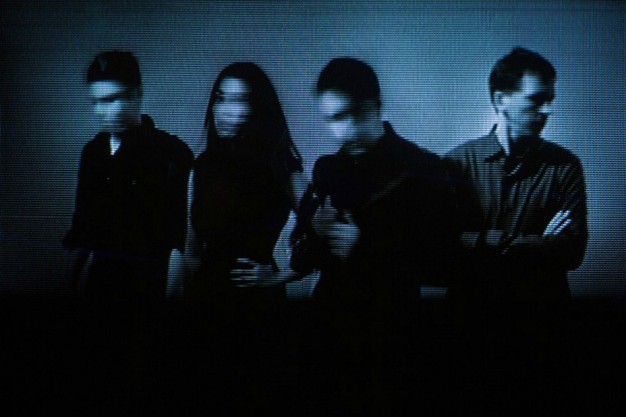 I’m not completely sure what to make of the new How to Destroy Angels album. I’m not sure because it’s so different from what I expect from Trent Reznor and what I remember HtDA sounding like. And I’m not sure actual humans put this album together: it’s so impersonal and cold it sounds like something beamed out of a dystopian science fiction movie.
I’m not completely sure what to make of the new How to Destroy Angels album. I’m not sure because it’s so different from what I expect from Trent Reznor and what I remember HtDA sounding like. And I’m not sure actual humans put this album together: it’s so impersonal and cold it sounds like something beamed out of a dystopian science fiction movie.
When we last paid any attention to Reznor, he was coming off a period where Nine Inch Nails were touring with Jane’s Addiction and pumping out hard rocking tracks like “Not So Pretty Now” or “Echoplex.” Die-hards might remember his forays into movie soundtracks: he scored The Social Network and The Girl with the Dragon Tattoo.
Oh, and he put together a little side band: How to Destroy Angels, featuring his wife Mariqueen Maandig, Atticus Ross, Rob Sheridan, and himself. In 2010, they released an EP that was, in a word, unfocused: it felt like Reznor trying really hard to make something very different than his NIN works. Maybe it had something to do with him taking some time off, it certainly sounds like he went out to the woodshed.
Their new album, Welcome Oblivion, is something different: it’s jagged and ominous and it’s layered with bleep-bloopy computer sounds and Maandig’s vocals. It sounds inorganic: it’s a cold, computerized album, like something The Borg might sound jam to on a Friday night. On songs like the title track, the synths and keyboards sweep across like a flatbed scanner. Elsewhere (“On the Wing”, “How Long”), HtDA comes close to Gorillaz’ The Fall and Radiohead’s recent output. In other words: dance music you can’t dance to.
Elsewhere, the band tries new sounds. On “Ice Age”, one of the standout tracks of the album, they have a plunking, vaguely folksy sound that still seems as if it’s coming from a computer (although perhaps a rather chipper one; maybe Seven of Nine). Lyrically though, it’s not far removed from Reznor’s usual; “I see the color of your eyes has turned to grey / I feel the wind is growing colder every day,” sings Maandig. It’s like what she sings on “Too Late, All Gone”: The more things change, etc…
The biggest obstacle to this album is the same one that faces a lot of electronic dance music: it’s okay in stretches, but for a full album? Unless you’re one of the converted – and then you’re probably not reading this, since nothing could’ve dissuaded you from listening to this album on day one – everything kind of blends together into one big dance album you can’t really dance to. There’s precious little that stands out: there aren’t many moments which really grabbed me and demanded my attention. It all seems rather programmed.
Still, the hardcore fan will appreciate the way Reznor’s been able to incorporate his side projects into this: you can hear elements of his scoring in here and little snatches of NIN (especially in the computerized percussion). In this sense, it’s nice to hear that he’s trying new things and, more importantly, is putting all the pieces together into a whole. And, in pieces, it’s an interesting listen: it’s not a bad album, but I’m not sure HtDA should be doing more than just EPs, as brevity seems in their best interests.
All in all, this album’s another interesting step in Reznor’s career, but truth be told, I’m more interested in what he’s doing with the latest incarnation of NIN.
Rating: 3/5


